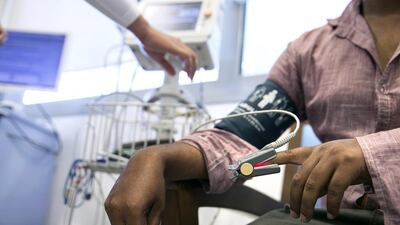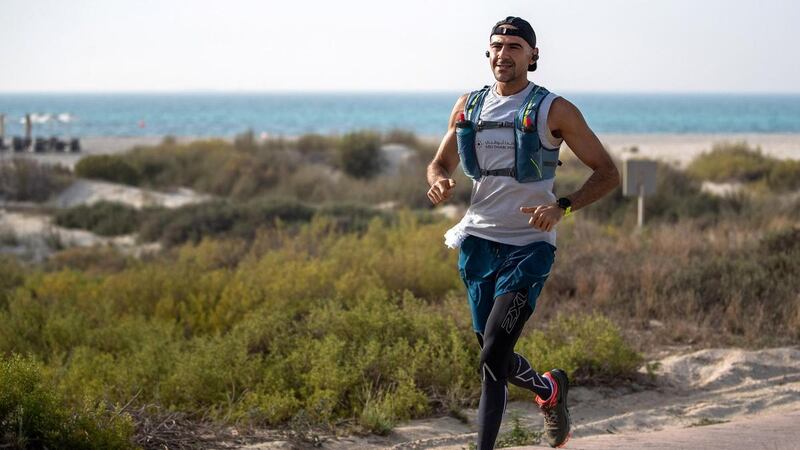Almost half of women and more than 40 per cent of men are not getting enough exercise in the UAE, new figures have shown.
Data compiled by the World Health Organisation (WHO) found the Emirates ranked alongside the UK and the US as having some of the most inactive populations in the world.
The study showed Kuwait to be the worst offender, where 67 per cent of the adult population fails to complete the recommended 150 minutes of moderate exercise or 75 minutes of vigorous exercise each week.
In the UAE, researchers found 41 per cent of the population was not taking enough weekly exercise to lead a healthy lifestyle, increasing the risk of health complications in later life.
“Staying fit and active throughout your life has many benefits,” said Dr Yasser Sadawey of Medeor 24x7 International Hospital in Al Ain.
“Exercise helps keep your heart healthy and strong and maintain good cholesterol.
“Additionally, there are all the traditional benefits of exercise like lower blood pressure, better control of weight, leaner, stronger muscles, stronger bones and more energy.”
WHO researchers complied data from 358 surveys from 168 countries involving nearly two million people.
Survey questions had to capture physical activity across all domains of life, including at work and within the home.
The results, published in the medical journal Lancet Public Health, found 36 per cent of the UK’s population was failing to take sufficient exercise.

By comparison, the study showed in Finland, one of the fittest nations in the world, only 17 per cent of people were not hitting the WHO recommended exercise target.
Dubai Health Authority recently launched a new programme to encourage more pupils to take exercise in schools to help counteract the nation’s increasing childhood obesity.
Pupils in the Emirate who started a new term this month will be encouraged to complete the recommended 150 minutes of exercise per week.
A recent YouGov poll taken on behalf of Oman Insurance and Bupa Global found an alarming lack of knowledge on healthy living among some young people.
The poll of 249 children aged six to 11 in the UAE found nearly a quarter of those polled considered playing video games or reading a book as physical exercise.
A similar survey of more than 1,000 parents in the UAE and Saudi Arabia, also conducted by YouGov, found 90 per cent of children had access to mobile devices, spending an average of two and a half hours on them each day.
Worldwide, the WHO’s latest findings showed an estimated 1.4 billion people were not doing enough exercise to stay healthy, more than a quarter of the global population.
The report also found that in general those living in wealthier nations were more likely to have sedentary jobs requiring little physical activity, and were also more likely to drive their own car.
________________
Read more:
Concerns for young people who find it 'impossible to unplug' from games and gadgets
UAE's high child obesity rates blamed on technology
Anti-cancer blueprint to help reduce illness fatalities
________________
Researchers said those living in poorer countries, however, often needed to walk more often due to either a lack of public transport networks or its prohibitive cost.
“We were designed to move and unfortunately nowadays with cars, technology, elevators, and escalators we have removed all activity in our life,” said Mabina Daniel Lengweng, managing partner at Vigour Energy personal coaching services in Dubai.
“Exercise is best for preventing many illnesses and disease by creating good blood circulation, building our resistance to infection and helping to combat stress.”
Mr Lengweng went on to outline the most effective methods of staying healthy and keeping fit.
“In the beginning, the aim is to get the person fit and educate them about a healthy lifestyle,” he said.
“We can then follow up by building muscle to improve their immune system.
“To be successful, we find 80 per cent of any exercise program is based on the quality of their nutrition and diet.”
Dr Sadawey added: “There are three main kinds of exercise - aerobic, strength training, and flexibility work.
“You should aim to have a good balance of all three, and at least 30 minutes of aerobic exercise most days of the week.”







